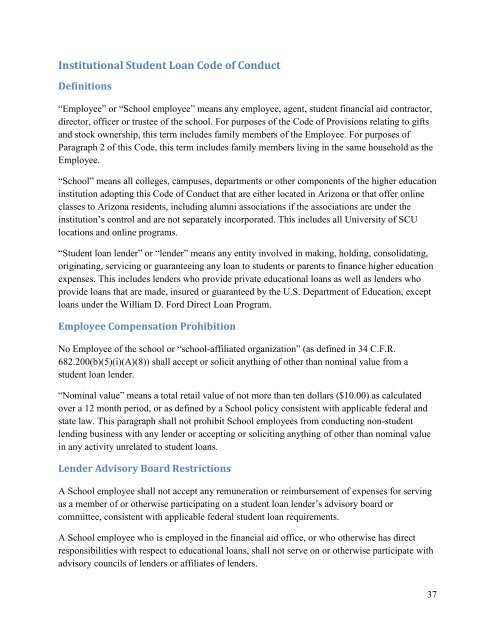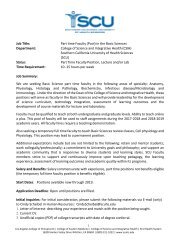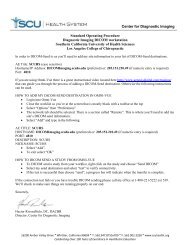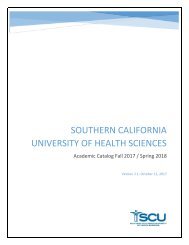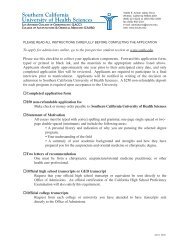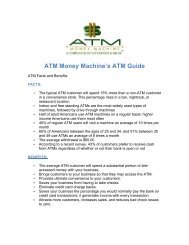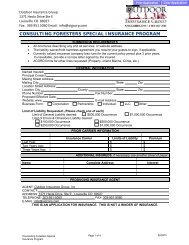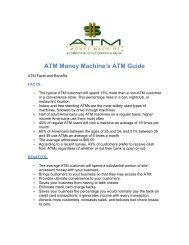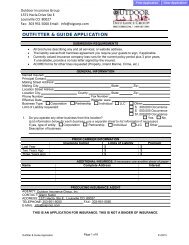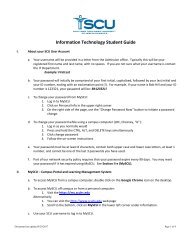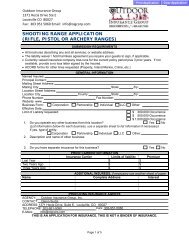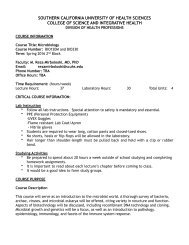Southern California University of Health Sciences - Consumer Information Guide
SCU distributes this Consumer Information Guide which includes a notice of the availability of information required pursuant to specific requirements under the Higher Education Opportunity Act. Read this PDF and know SCUHS consumer information guide.
SCU distributes this Consumer Information Guide which includes a notice of the availability of information required pursuant to specific requirements under the Higher Education Opportunity Act. Read this PDF and know SCUHS consumer information guide.
You also want an ePaper? Increase the reach of your titles
YUMPU automatically turns print PDFs into web optimized ePapers that Google loves.
Institutional Student Loan Code <strong>of</strong> Conduct<br />
Definitions<br />
“Employee” or “School employee” means any employee, agent, student financial aid contractor,<br />
director, <strong>of</strong>ficer or trustee <strong>of</strong> the school. For purposes <strong>of</strong> the Code <strong>of</strong> Provisions relating to gifts<br />
and stock ownership, this term includes family members <strong>of</strong> the Employee. For purposes <strong>of</strong><br />
Paragraph 2 <strong>of</strong> this Code, this term includes family members living in the same household as the<br />
Employee.<br />
“School” means all colleges, campuses, departments or other components <strong>of</strong> the higher education<br />
institution adopting this Code <strong>of</strong> Conduct that are either located in Arizona or that <strong>of</strong>fer online<br />
classes to Arizona residents, including alumni associations if the associations are under the<br />
institution’s control and are not separately incorporated. This includes all <strong>University</strong> <strong>of</strong> SCU<br />
locations and online programs.<br />
“Student loan lender” or “lender” means any entity involved in making, holding, consolidating,<br />
originating, servicing or guaranteeing any loan to students or parents to finance higher education<br />
expenses. This includes lenders who provide private educational loans as well as lenders who<br />
provide loans that are made, insured or guaranteed by the U.S. Department <strong>of</strong> Education, except<br />
loans under the William D. Ford Direct Loan Program.<br />
Employee Compensation Prohibition<br />
No Employee <strong>of</strong> the school or “school-affiliated organization” (as defined in 34 C.F.R.<br />
682.200(b)(5)(i)(A)(8)) shall accept or solicit anything <strong>of</strong> other than nominal value from a<br />
student loan lender.<br />
“Nominal value” means a total retail value <strong>of</strong> not more than ten dollars ($10.00) as calculated<br />
over a 12 month period, or as defined by a School policy consistent with applicable federal and<br />
state law. This paragraph shall not prohibit School employees from conducting non-student<br />
lending business with any lender or accepting or soliciting anything <strong>of</strong> other than nominal value<br />
in any activity unrelated to student loans.<br />
Lender Advisory Board Restrictions<br />
A School employee shall not accept any remuneration or reimbursement <strong>of</strong> expenses for serving<br />
as a member <strong>of</strong> or otherwise participating on a student loan lender’s advisory board or<br />
committee, consistent with applicable federal student loan requirements.<br />
A School employee who is employed in the financial aid <strong>of</strong>fice, or who otherwise has direct<br />
responsibilities with respect to educational loans, shall not serve on or otherwise participate with<br />
advisory councils <strong>of</strong> lenders or affiliates <strong>of</strong> lenders.<br />
37


